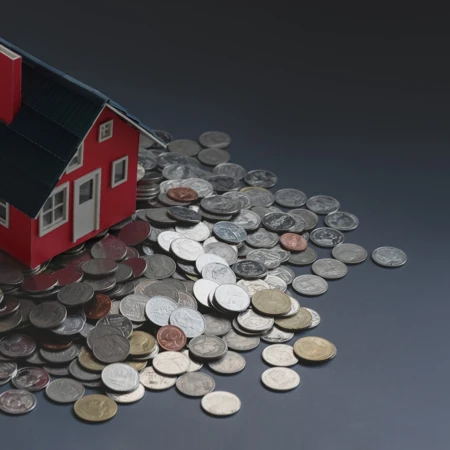The cost of living is increasing faster than at any other time in history and UK inflation currently stands at 7% - the highest rate it has been for 30 years. This means that many people are consciously trying to save money where they can.
Despite the rising cost of household bills (fuel bills have soared with an average increase of £693), your house shouldn't be a place to make you worry about your finances — it should be a place of sanctuary and escape.
With this in mind, we have been looking at ways your home can save you money – an attractive selling point if you are putting your property on the market, a bonus for purchasers and, if you’re not ready to up-sticks just yet, more money in the bank for you.
OLDER BUILDINGS
It may come as no surprise that older buildings aren’t always the most energy-efficient. They can be draughty and hard to heat – especially if the central heating is old and the windows single glazed and many can’t even accommodate cavity wall insulation; The ‘Love Your Old Home’ Workbook from the Centre for Sustainable Energy gives some great ideas on ways to make an old property more energy efficient.
Some older properties also bring with them listed or protected status which can restrict any changes and would need to be checked before making changes.
HEATING and INSULATION
Old boilers are also notoriously inefficient and as they age, they must work harder to heat your home and water meaning you pay more in heating bills to achieve the same result. In fact, boilers over 25 years can be as little as 60% efficient.
All modern boilers are ‘condensing’ boilers. This means they can recover heat that was previously lost via the flue to pre-heat the heating system. So, if your boiler is getting old, or if you've recently moved into a home with an existing boiler that hasn't been serviced, it may be worth hiring an engineer to service it or even installing a new model.
However, you could have the most energy-efficient boiler in the world, but it would still be costing you more money if you’re home isn’t holding the heat in properly. Therefore, your next step should be to check your loft insulation. If it is thin (or missing) it will be letting out a lot of heat. You should also check cavity walls and floors, especially if you have an unheated space below your living areas.
Good insulation prevents heat loss, which means you don't have to spend as much on heating. A well-insulated and well-designed home can save you up to a quarter on your energy bills, compared with an uninsulated house.
If you are going to update your insultation, you should be aware that the type of insultation you require is dependent on the type of construction you have. Before taking any action, it is best to consult an expert or seek advice from a local authority.
THE ENVIRONMENT
If you are not under any restrictions to make changes (and have a predominantly south facing roof) then solar panels can be a cost-effective investment that not only benefits the environment but also saves money – and can be a real selling point.
Solar panels save users money on their electricity bills, generate income for the energy they produce that is exported back to the grid and help to protect against rising energy costs. Savings depend on the size of the panels installed and the amount of electricity the household uses but based on estimates by the Energy Saving Trust a typical household with a 4.2 kilowatt-peak system can knock between £165/year and £405/year off bills.
However, with installation costs at around £6000 it can take around 13 years to break even, which is why buying a home with these already installed can be more attractive than initially fitting them.
Whether you are buying, selling or staying put – making your home as energy efficient as possible is never a bad thing. Check out the Energy Saving Trust website for even more information and tips.
Important information
Your home may be repossessed if you do not keep up repayments on your mortgage.
There may be a fee for mortgage advice. A fee of up to 1% of the mortgage amount may be charged depending on individual circumstances. A typical fee is £395.

